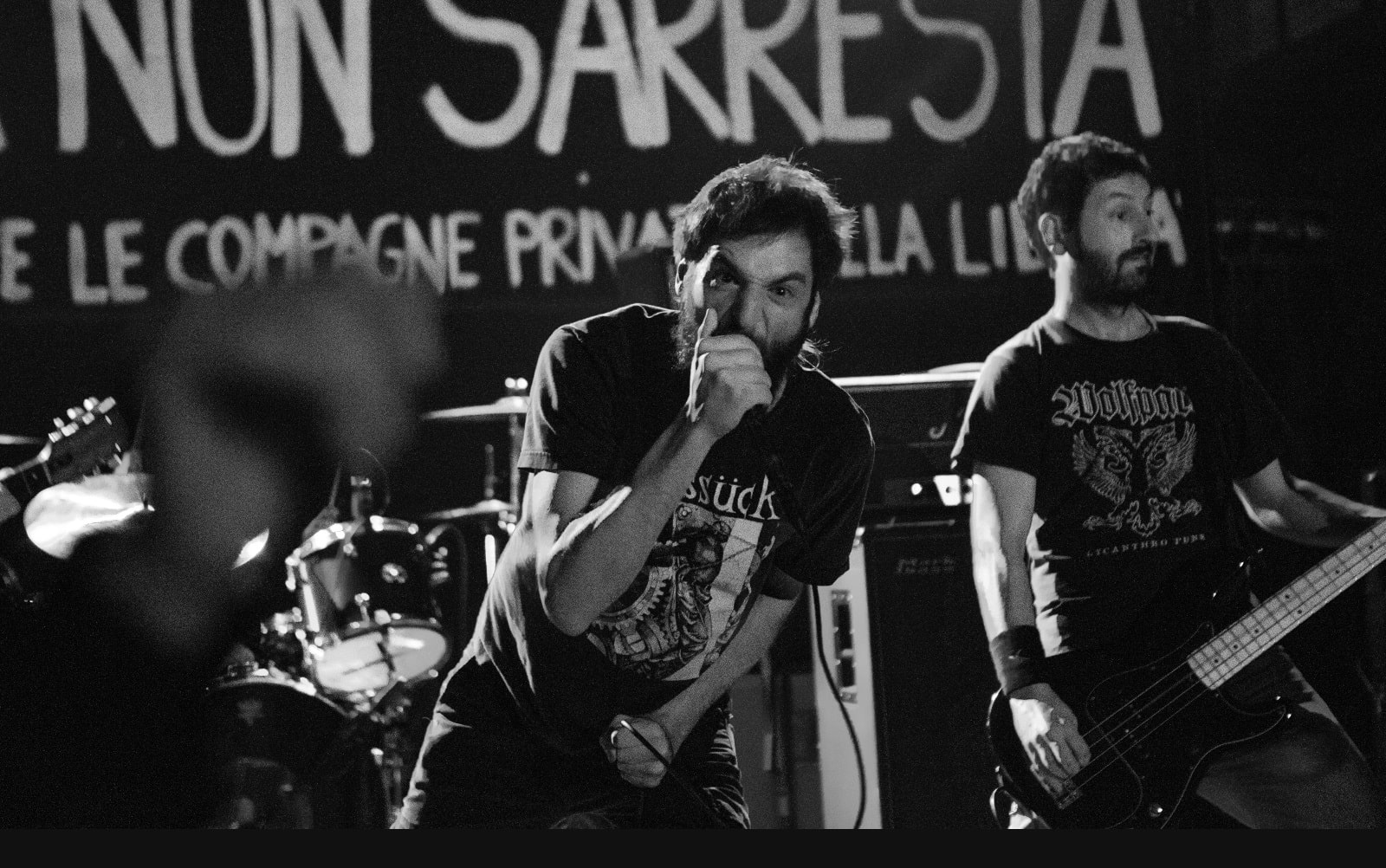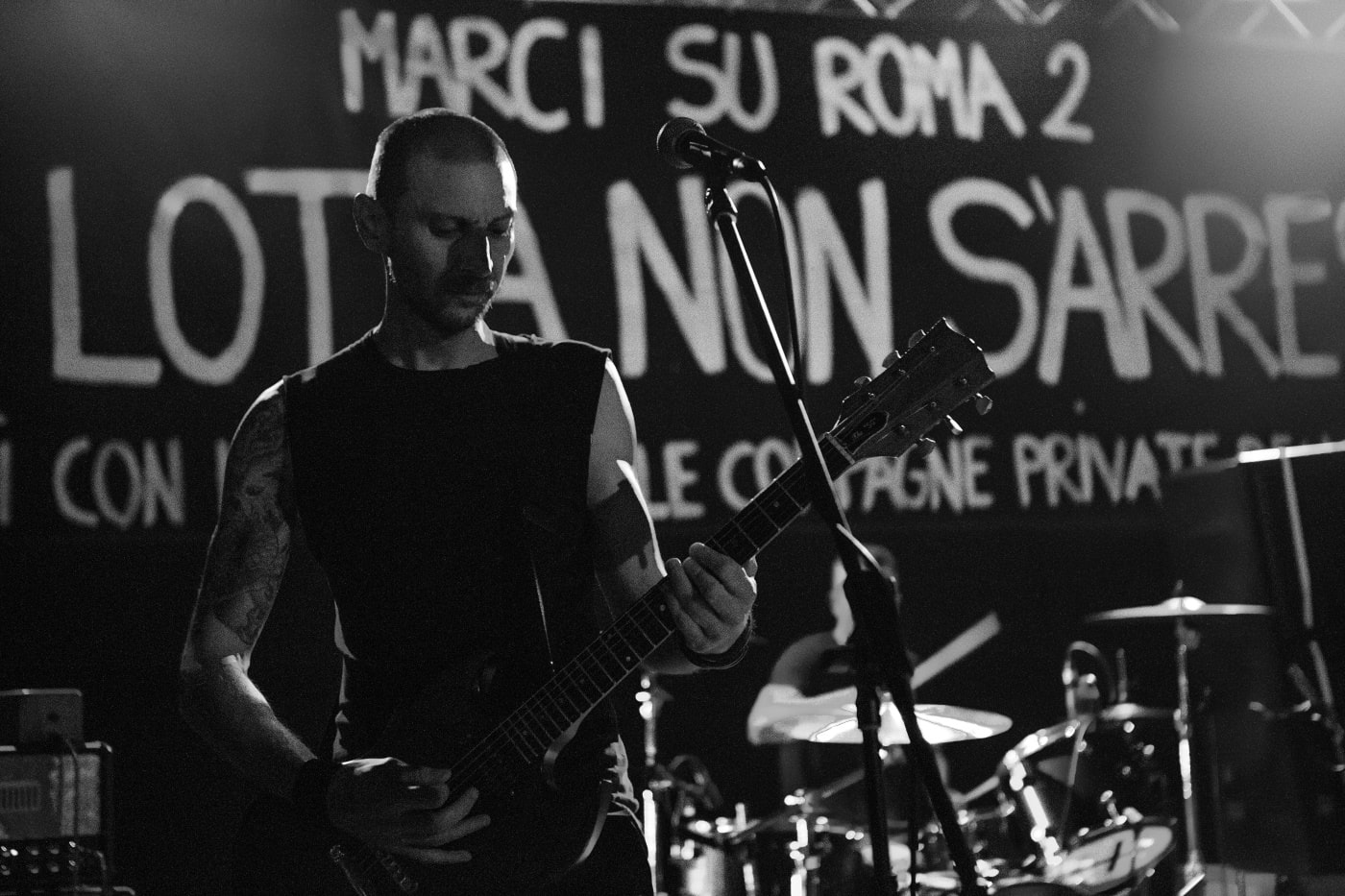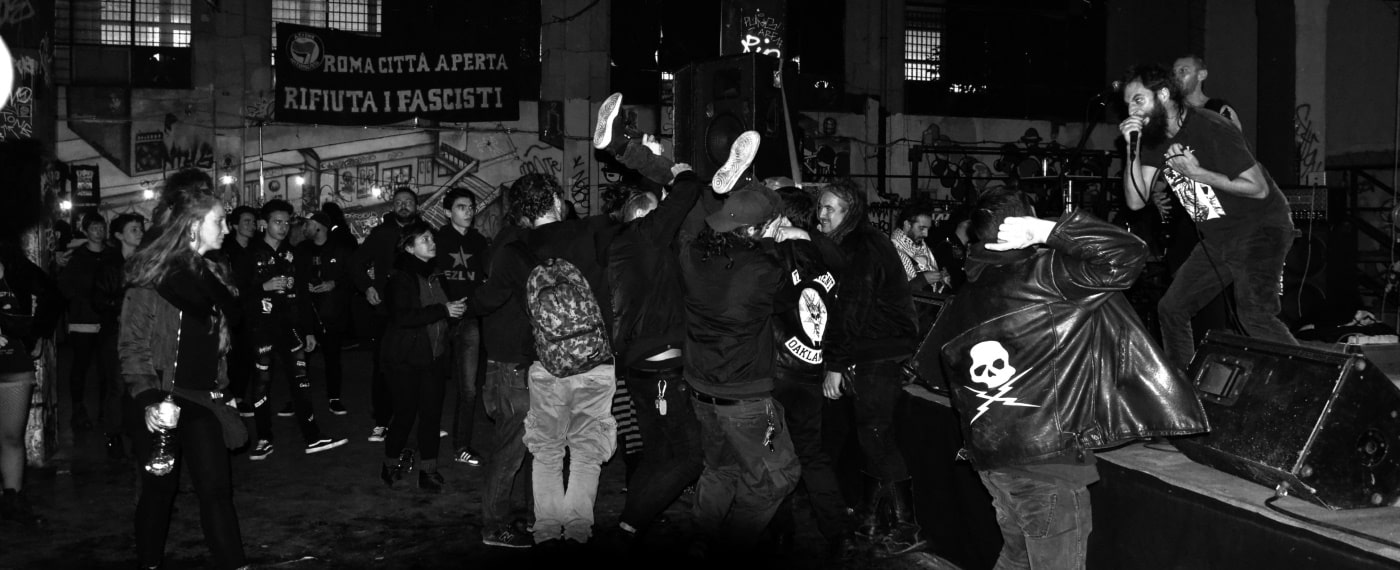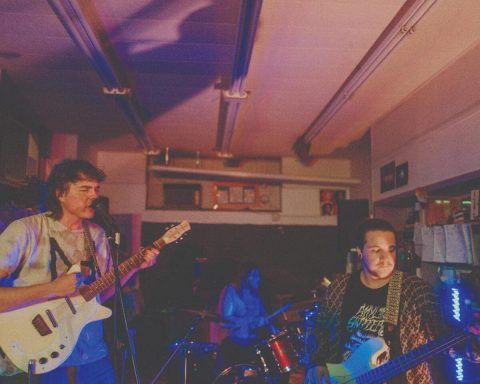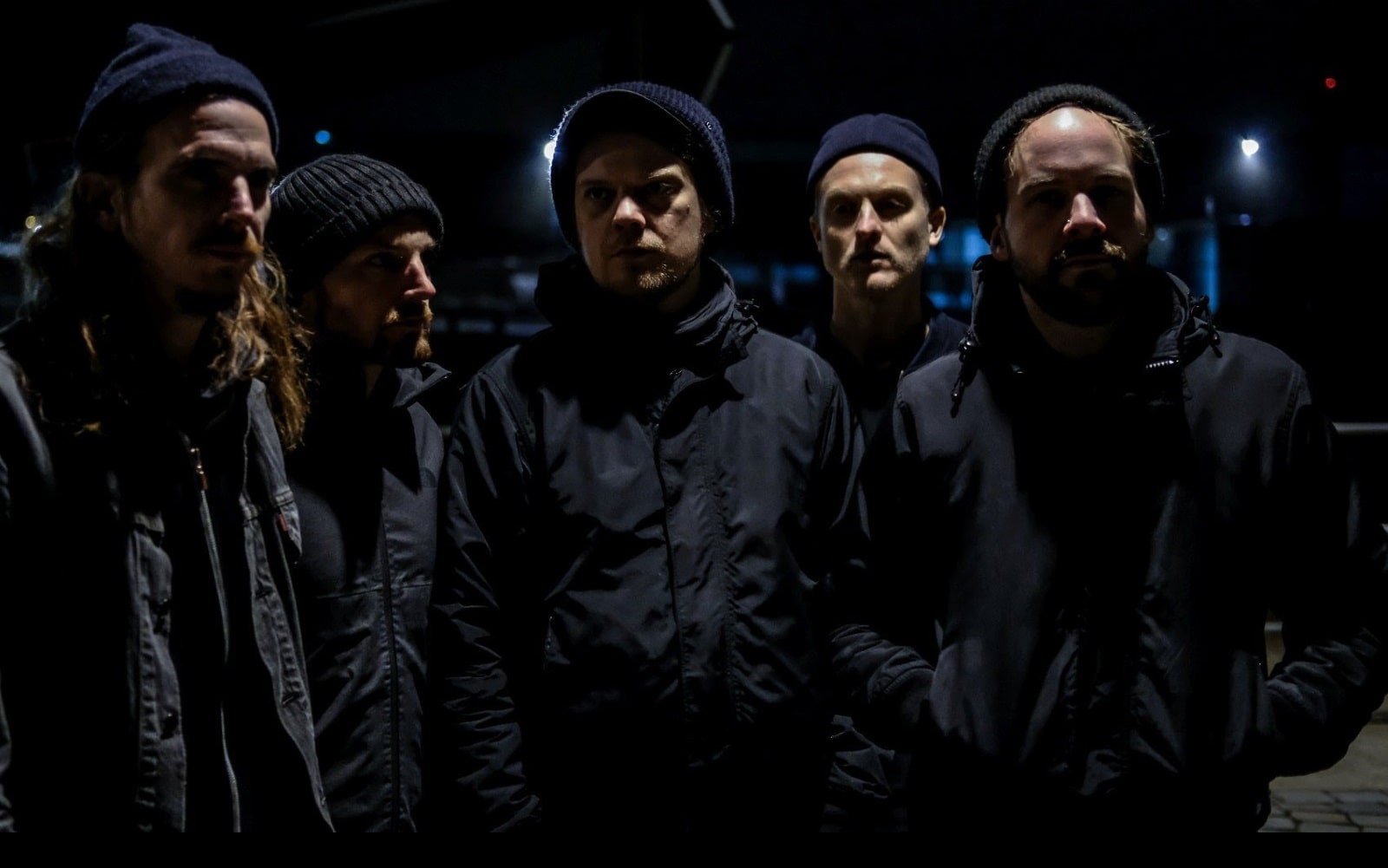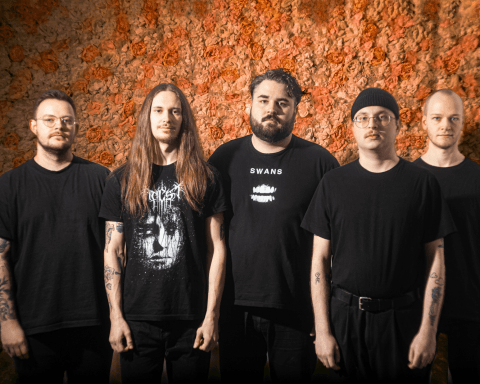Stepping into their 10th anniversary this year, Italian ferocious crust / d-beat hardcore punk band CULTO DEL CARGO have shifted into a different gear with their recent ultra fast, ear-wrenching new album “Memorie in lingua morta”. Laced with relentless riffs and sick tempo, the tension of the new offering never eases and it’s simply overwhelming! Today, we’re giving it a proper nod with a full track by track commentary (including two music videos), the band’s take on their local music scene and the impact of COVID-19,and a special list of Top 10 Inspiring Movies worth a check!
CULTO DEL CARGO’s new 12” LP Memorie in lingua morta is available on 350 limited edition copies of die hard vinyl (180 g). You can grab it through this location.
The band released their debut EP in 2011, dropped a follow up released 3 years later (Nel nome dell’uomo la tecnica macina carne EP), and hit the road for major European tour with Nulla Osta (Croatia) in 2015, doing shows in France, England, Welsh, Scotland, Belgium, Netherlands, Germany, Switzerland, and Italy. Since 2010, they shared stages with Wolfbrigade, M.D.C., Tragedy, Warcollapse, Malignant Tumor, Deviated Instinct, Warfare, Riistetyt, OiPolloi, Impact, Hellkrusher, Cress, Bolesno Grinje, Nulla Osta, Sakatat, Simbiose, and more!
Asked about their take on their local music community, the band commented: “Over the years, the Italian scene has profoundly changed, ertainly losing its strength compared to twenty or thirty years ago.”
“There are self-managed places and small clubs that offer the opportunity to perform to underground groups, but they are less and less, and in many cases they have become somewhat different compared to the beginning. Consequently, a group made up of very young people struggles to find places where they can play live, and this has caused the lack of a real generational change.
Many new groups, in fact, are made up of people of a certain age, active in the scene for a long time and who already know how to move to try to emerge and get the name around.
“The impact of COVID-19 was devastating: canceled concerts and festivals, clubs that had to cancel their entire gigs programming. Now things are slowly improving, but no one knows when we will be able to return to a reassuring normalcy.” – they conclude.
Nella sicurezza di un nuovo Medioevo
The meaning lies in the original text, taken from “The Call of Cthulhu” by H.P.L .: “We live on a placid island of ignorance in the midst of black seas of infinity, and it was not meant that we should voyage far.”
Autopsia sul cadavere del capitalismo
At the end of the capitalist era, its supporters are desperately trying to revive the monster, weakened by its own contradictions, by examining what may have been the causes of its failure.
L’uomo senza desideri
Ernesto Girotto (whose story is testified by the Roiter brothers in the photographic book “A man without desires”) completely isolates himself from the world by digging a ditch around his property and living only on the products of his agricultural work for about forty years.
Continued below…
Il boia perfetto
This song talks about the technology invasion in our life and the addiction that it cause. It seems that we can’t live without technology contactc, like a digital octopus, but nothing is for free and for have some services people sacrifice their own freedom.
Massa contro il muro
The text is completely composed of phrases extrapolated from Elio Petri’s political drama film “The working class goes to heaven” (1971). The song is a critic to the alienation of the working class in a reality of “factories and cemeteries”.
Come in un gioco di specchi
As in a mirrors game, it describe the situation about sovranism in Italy that we paragone it to fascism, like an history alredy seen. But seems that from people mind is totally disappear the historical memory and all the brutal violence that fascism did it. Ok, now they have changed the name, but it’s all done with smoke and mirrors.
Il futile indispensabile
The advertising tells itself, revealing weapons and tricks that it uses to trick its vast audience by hypnotizing it with futile unattainable dreams.
Muri più alti
The song was made for “Non un sasso indietro Vol.II”, compilation hardcore benefit to keep up the struggle against borders and center of detention for immigrants peoples in Italy.
L’urlo del fango
Faced with social injustices, the itch triggered by the need for redemption stimulates violence.
Moto uniformemente accelerato
We explain with a principle of physics the devastating impact of man on the environment, which as an avalanche, the more it advances, the more devastating its effects becomes.
Ultima panoramica mondiale
Snapshot of the historical period we are going through.
Il delirio rende liberi
In a society that designates to conform to a sterile model swollen with contradictions as the only formula of acceptable life, making oneself unacceptable becomes the only form of freedom.
Top 10 Inspiring Movies Worth Seeing
Blindness (2008) directed by Fernando Meirelles
A film about a society that suffers an epidemic of blindness.
La Haine (1995) directed by Mathieu Kassovitz
A film about three young friends and their struggle to live in the banlieues of Paris.
They Live (1988) directed by John Carpenter
It follows an unnamed drifter who discovers through special sunglasses that the ruling class are aliens concealing their appearance and manipulating people to spend money, breed, and accept the status quo with subliminal messages in mass media.
Todo modo (1976) directed by Elio Petri
It represents the portrait of the deviant men of power of the Christian Democrats, an old and disappeared italian political party.
Salò, or the 120 Days of Sodom (1975) directed by Pier Paolo Pasolini
The film focuses on four wealthy, corrupt Italian libertines in the time of the fascist Republic of Salò (1943– 1945). The libertines kidnap 18 teenagers and subject them to four months of extreme violence, sadism, and sexual and psychological torture. The film explores themes of political corruption, consumerism, authoritarianism, nihilism, morality, capitalism, totalitarianism, sadism, sexuality, and fascism.
La Grande Bouffe (1973) directed by Marco Ferreri
The film centres on a group of friends who plan to eat themselves to death. It satirises consumerism and the decadence of the bourgeoisie and was therefore controversial upon its release.
Soylent Green (1973) directed by Richard Fleischer
In the year 2022, the cumulative effects of overpopulation, pollution and some apparent climate catastrophe have caused severe worldwide shortages of food, water and housing.
The Working Class Goes to Heaven (1971) directed by Elio Petri
A political drama that depicts a factory worker’s realisation of his own condition as a simple “tool” in the process of production and, implicitly, his struggle with the trade unions.
Investigation of a Citizen Above Suspicion (1970) directed by Elio Petri
It is a dramatic, psychological, black-humored satire on corruption in high office, telling the story of a top police officer who kills his mistress, and then tests whether the police would charge him for this crime. He begins manipulating the investigation by planting obvious clues while the other police officers ignore them, either intentionally or not.
The Grapes of Wrath (1940) directed by John Ford
The film tells the story of the Joads, an Oklahoma family, who, after losing their farm during the Great Depression in the 1930s, become migrant workers and end up in California.



